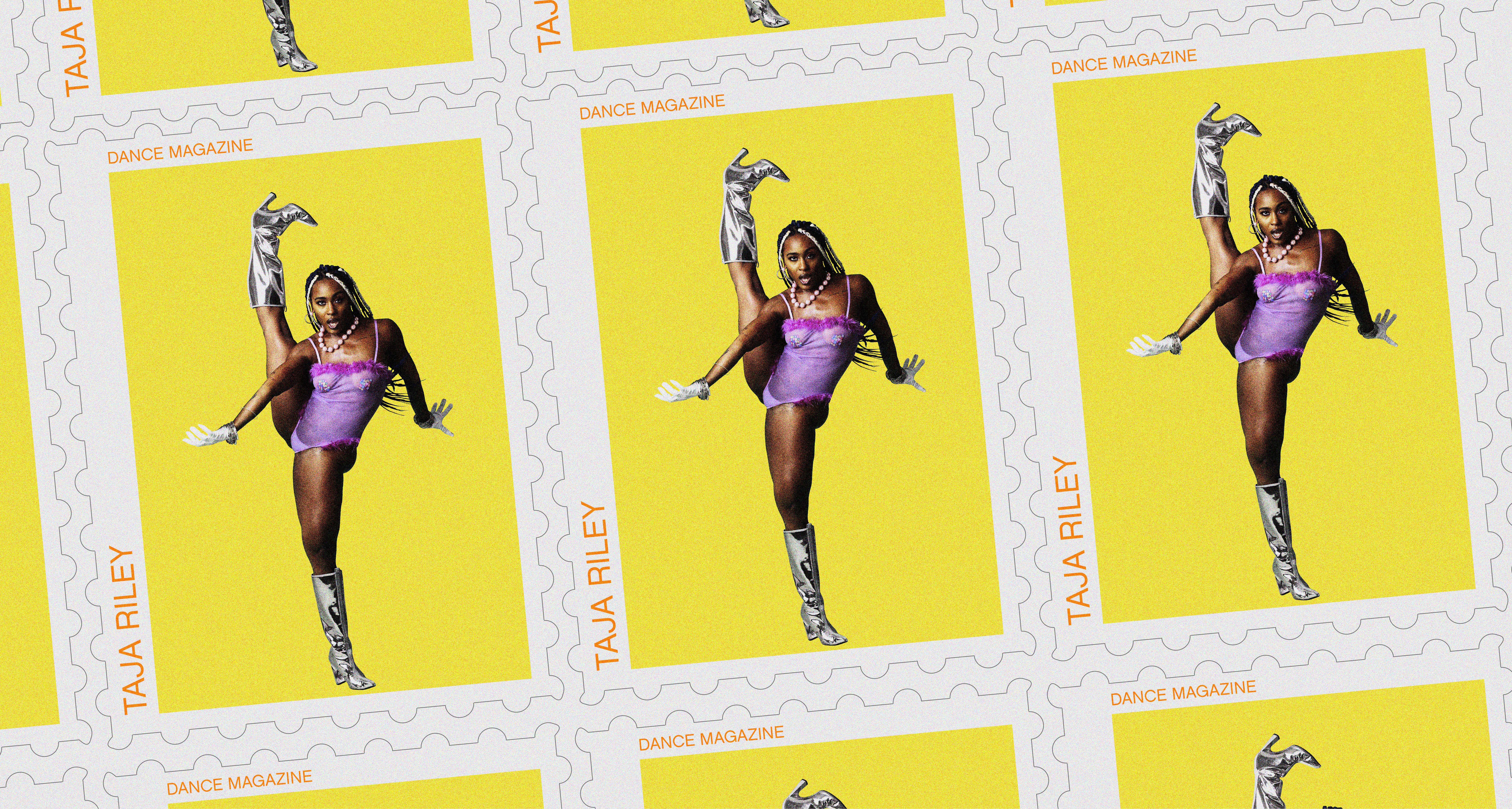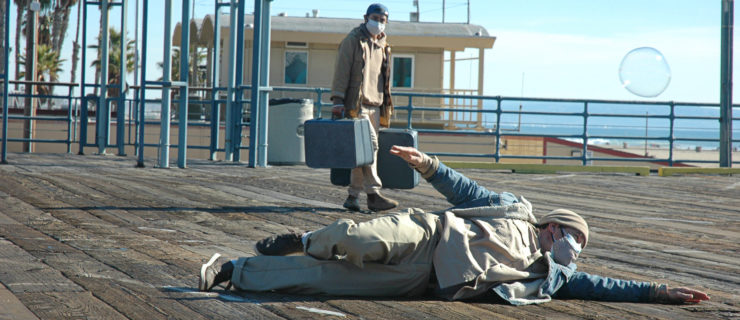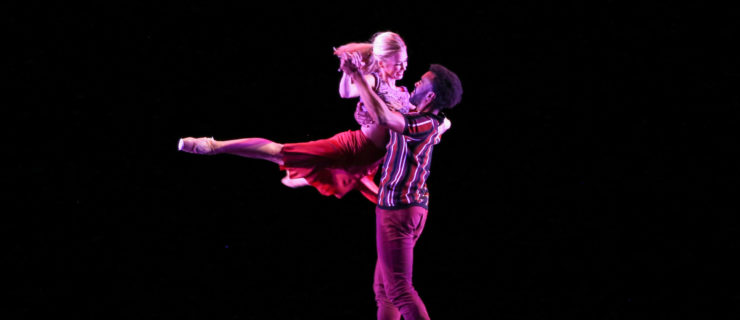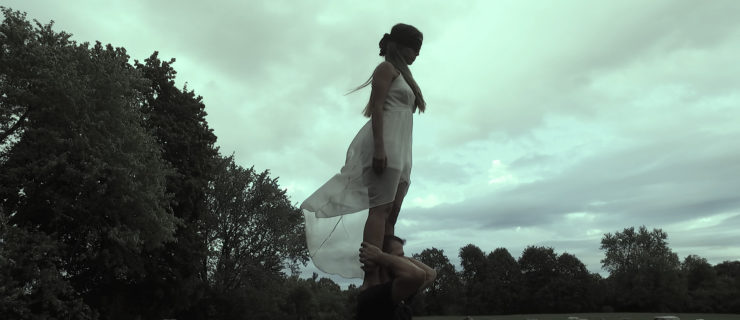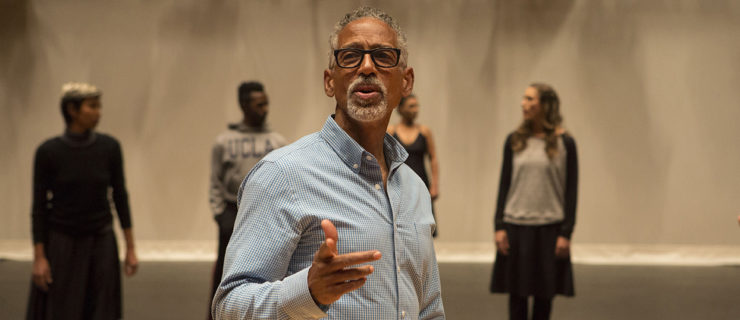Beyond the Super Bowl: Dance Artist-Athlete Taja Riley Is Demanding Better Treatment for Dancers
Eight mandatory rehearsals. One nondisclosure agreement. Zero pay. These were a few of the specifications laid out in a casting call for dancers to be a part of the 2022 Super Bowl halftime show. After news got out that some dancers would be working as volunteers, and receiving no real benefits besides the exposure opportunity of a lifetime, Taja Riley was one of many who decided to speak up about how off-putting and disrespectful this offer felt, as well as how accepting jobs like this keeps dancers underpaid and underappreciated.
Just in time for the most-watched sporting event in the country, Riley successfully spearheaded a movement (on behalf of as many as 400 performers) to ensure that all dancers for the halftime show got fully compensated for their time and energy. For dancers in the community and supporters of the movement who helped spread the issue far and wide, this news felt like a game-winning touchdown—the type that calls for a celebratory dance! But the work doesn’t end there. It’s just one part of a continuous conversation.
Speaking up about the mistreatment of professional dancers is nothing new for Riley, a self-proclaimed dancer artist-athlete who, since the early quarantine days, has sparked some important conversations about the realities of the industry on social media. “We need to start educating people on the state of our community, in addition to being clearer with dance jobs about how our time, energy and influence should be valued,” says Riley, who uses she/he/they pronouns.
Along the way, Riley shared their own experiences in a way that pretty much every dancer can relate to. Now they’re building an entertainment company, TKO Quarantainment Inc., and developing a multitude of creative projects. Riley has put their own career dancing with some of the world’s top music artists to the side to “leap into the unknown” in pursuit of a better future, where dancers are valued and the dance community as a whole is elevated.
Riley recently spoke to Dance Magazine about some of the inequities that dancers have faced on set, from unreasonably low wages to questionable contracts and the absence of credit. “Yes, some of these production companies may be trying to undermine us, but I’m starting to discover that most of them just don’t know, or are following previous patterns,” they say.
The message is now en route to millions of people worldwide as Riley continues to use their voice and platform to heal, inspire and empower the dance community to see the worth of its members, so that the rest of the world can too.
What Sparked the Action:
Having worked with a long list of prominent names like Janet Jackson, SZA, Beyoncé and Jennifer Lopez, Riley has experience to pull from when addressing industry issues. Despite the great experiences that they’ve had throughout their career, it was the few bad experiences—and the normalized fear of speaking up about them—that inspired the action Riley is taking today.
Feeling the need to walk out on a dream job in 2011, due to their moral standards being tested, helped Riley to understand the deeper implications of how dancers were viewed in the industry and led them to focus on redefining those standards. “I expressed my concerns with some of the other dancers on set, and there were multiple that felt the same way,” they say. “I was in a state of shock,” but eventually Riley pulled the choreographer aside to express appreciation, and kindly let him know that they weren’t willing to compromise who they were. “In this moment, when I was asked to do choreography that I felt went against my faith, the way that I viewed the dance industry completely shifted, and it actually latched onto my love for dance,” they add.
As a second-generation entertainer, Riley had always viewed themself as a business, and that’s part of the reason they’re fighting so hard for dancers to understand the importance of honoring the craft while honoring personal boundaries.
On Dancers Viewing Themselves as a Business:
“Do you have a mission statement? When you’re working, do you have a vision or a purpose for why you’re there? As a dance professional, that’s what you stand on. That’s your foundation. Who you are can then be broken down into concepts and statements, which can help you organize your value and the definition of your product, which is your likeness.”
These are crucial factors to take into consideration so that dance artists can stand firmly on what they believe in while on the job, and easily discern what they’re willing to stand for, fall for or sacrifice when it comes to certain dance jobs.
Tuning In to “TAJTV”
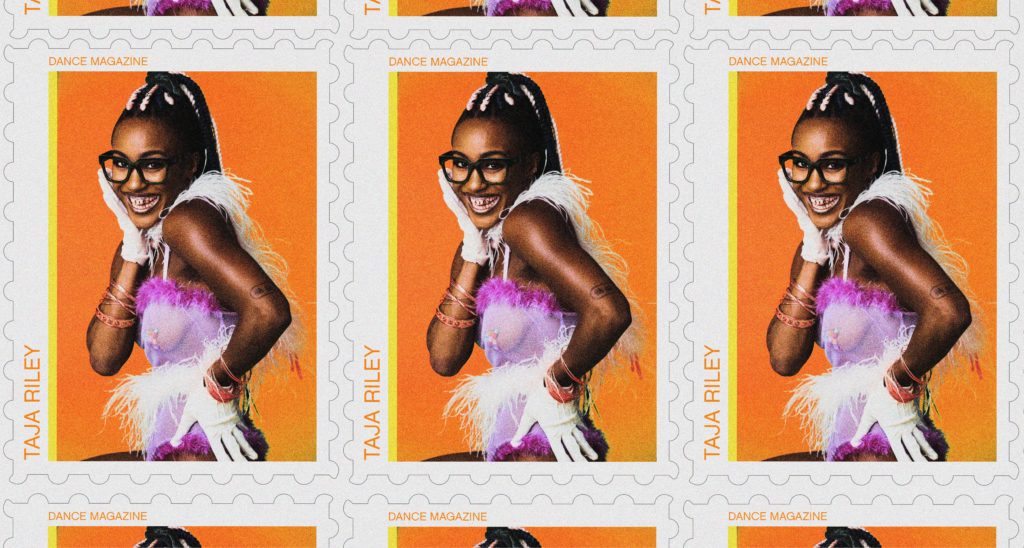
Riley plans for TKO Quarantainment’s debut television program series, “TAJTV,” to serve as a resource to help uplift the dance community. It’s a unique talk show that’ll feature a number of special segments featuring an elite cast of mainstream entertainers, and tap into topics of concern within the industry, while discussing how to build solutions. “I want to be able to show the great parts of the dance industry, as well as touch on some of the things that need more awareness.”
“We’ve already shot some of the pilot, and I’m so thankful to all of the donors to the GoFundMe! We would love to finish it so that we can pitch it for up-fronts.” You can find updates on Riley’s GoFundMe page as they inch toward the $15,000 goal to get the show off the ground and onto television screens.
The Day-to-Day of a Dance Activist:
As someone who’s working to improve the reality of dance artists, daily life is “unpredictable,” Riley says. “Some days are very empowering, productive and triumphant, and other days feel very sad and draining.”
“There’s also the physical work and outreach, like contacting media, and a long to-do list for projects in progress: The continual development, executive producing, going out to get people on board, contracting, developing, templating, creating, reading, amending and delegating to the team. Then, of course, there’s leaving space for my emotional work, which I find in my dance training, and even horse training! Awakening myself dance-wise has been crucial for grounding myself during this process. ”
Riley feels the busy schedule is worth it because they’ve focused on the bigger picture: impacting the dance community—and beyond. Inspired by the openness of Oprah Winfrey, Riley is hoping that this movement can have the same impact for dance as major media figures and publications of that level have had on other fields.
On Memes and Bringing Humor Into the Mix:
Many of the memes on Riley’s Instagram page use humor to shine a light on some seriously shady issues that dancers face. “I think that the best way to heal is to laugh and cry,” they say. “Being a part of meme culture is being able to captivate the subconscious of the alter egos inside of you in a way that feels relatable.”
How Others Can Get Involved:
“We must unify! We have so much power, and we’re so much stronger together,” Riley says. “When you read this article, go talk to someone about it. Bring it to your parents, your dance teacher, your dance peers, and have a discussion about it.”
Making Dance History:
The bottom line is that despite the popularity that dance artists have helped make possible for so many brands and music artists over the years, they are often still grossly underappreciated. Riley believes that professional dancers should be treated and paid equally to professional athletes and musicians. For a lot of folks, such drastic change just isn’t fathomable, but Riley continues to push the vision forward and unapologetically highlight the mistreatment of dancers, so that positive change can be applied within the industry little by little.
Riley is inspiring dancers to move past unethical traditions just because “that’s the way things have always been.” Questioning is the new cool. Respect is a must. Dancers are artists and athletes, and should be treated as such. And Riley reminds us of the need to continue the fight for progress: “This whole movement is just beginning.”
